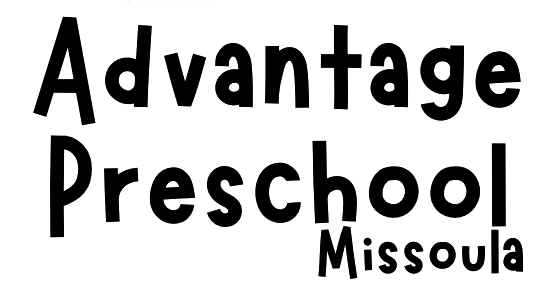Lolo Families: Why Early Childhood Education Matters for School Readiness
For families in Lolo considering their child's educational future, understanding the critical importance of quality early childhood education can make the difference between academic struggle and lifelong success. Research consistently demonstrates that children who participate in structured preschool programs show significantly improved school readiness compared to their peers who enter kindergarten without this foundation.
Located just minutes from Lolo in Missoula, Advantage Preschool provides comprehensive early childhood education that specifically prepares children for the academic and social demands they'll encounter in kindergarten and beyond. With over 25 years of experience in child development and a Master's in Education, our program addresses the unique needs of 3-5 year olds during these crucial developmental years.
Rural Montana Educational Considerations
Lolo's rural setting presents both opportunities and challenges for early childhood development. The wide open spaces and natural environment offer exceptional opportunities for outdoor learning and environmental science exploration, while the smaller community size can limit exposure to diverse social interactions that children need for school readiness.
Montana's variable climate conditions—from harsh winter temperatures reaching -20°F to summer highs exceeding 90°F—require children to develop adaptability and understanding of seasonal changes. Our curriculum incorporates these natural variations into learning activities, helping children understand cause-and-effect relationships while building resilience and flexibility.
The agricultural heritage surrounding Lolo provides rich opportunities for hands-on learning about plant and animal life cycles, basic scientific principles, and mathematical concepts through real-world applications. Children learn measurement through gardening activities, observation skills through animal studies, and seasonal patterns through agricultural cycles.
Kindergarten Readiness Assessment Standards
Montana's kindergarten readiness standards require children to demonstrate specific competencies in multiple domains before entering elementary school. Our comprehensive preschool education program specifically addresses each of these areas through structured activities and assessments.
Academic readiness encompasses pre-literacy skills including phonemic awareness, letter recognition, and basic writing mechanics. Children must demonstrate number sense, pattern recognition, and simple problem-solving abilities in mathematics. Scientific thinking requires observation skills, hypothesis formation, and basic understanding of cause-and-effect relationships.
Social-emotional readiness proves equally critical for kindergarten success. Children need self-regulation skills to manage emotions appropriately, communication abilities to express needs and collaborate with peers, and independence in basic self-care tasks like following multi-step directions and managing personal belongings.
Language Development and Communication Skills
Effective communication forms the foundation for all academic learning, making language development a priority focus in quality early childhood programs. Children entering kindergarten should demonstrate vocabulary knowledge of approximately 5,000-7,000 words, understanding of complex sentence structures, and ability to express ideas clearly through both verbal and beginning written communication.
Our structured approach to language development includes daily read-aloud sessions, guided conversation activities, and storytelling exercises that build both receptive and expressive language skills. Children practice active listening, following multi-step directions, and engaging in meaningful dialogue with peers and adults.
Pre-reading skills development focuses on phonological awareness, understanding that spoken words consist of individual sounds that can be manipulated and combined. Children learn letter-sound correspondences, rhyming patterns, and syllable identification through systematic, multi-sensory instruction methods proven effective for diverse learning styles.
Mathematical Thinking and Problem-Solving
Mathematical readiness extends far beyond simple counting, encompassing logical thinking, pattern recognition, spatial awareness, and problem-solving strategies that children will use throughout their academic careers. Kindergarten expectations include number recognition through 20, understanding of basic addition and subtraction concepts, and geometric shape identification.
We introduce mathematical concepts through manipulative materials, real-world problem scenarios, and structured games that make abstract concepts tangible and meaningful. Children learn measurement through cooking activities, geometry through building projects, and data analysis through simple graphing exercises using classroom observations.
Critical thinking development emphasizes logical reasoning, prediction skills, and systematic approach to problem-solving. Children learn to break complex tasks into manageable steps, consider multiple solutions to problems, and evaluate outcomes to improve future performance.
Social Skills and Emotional Regulation
Successful kindergarten transitions require children to function effectively in group settings, share materials appropriately, and resolve conflicts peacefully. These social competencies often determine academic success more than intellectual abilities alone, making social-emotional learning a critical component of school readiness preparation.
Our program emphasizes cooperative learning activities, structured peer interactions, and guided practice in communication skills. Children learn to express needs appropriately, listen to others' perspectives, and work collaboratively toward common goals. These skills prove essential for classroom participation and peer relationship development.
Emotional regulation instruction helps children identify feelings, understand emotional triggers, and develop appropriate coping strategies. Through role-playing exercises and guided discussion, children practice managing frustration, disappointment, and excitement in socially acceptable ways that support classroom learning environments.
Professional Educational Leadership
The quality of early childhood education depends heavily on instructor qualifications and program structure. With a Master's in Education and over a decade of experience as a preschool owner and director, Crystal Courtney brings exceptional credentials to early childhood education serving the Lolo community.
Our program operates Monday through Friday from 7:30 AM to 12:30 PM, providing optimal learning time while accommodating working families' schedules. This half-day format aligns with research showing that moderate program length maximizes learning benefits without overwhelming young children's attention spans and energy levels.
Families can explore our comprehensive approach through our photo documentation of learning activities that showcase real classroom experiences and child engagement. For detailed information about enrollment and program specifics, contact us at (406) 241-7464 to discuss how Advantage Preschool can provide the school readiness foundation your child needs.
Advantage Preschool is committed to providing Lolo families with research-based early childhood education that ensures kindergarten readiness and long-term academic success. Contact us today to learn how our proven curriculum and experienced leadership can give your child the educational advantage they deserve for their future learning journey.
